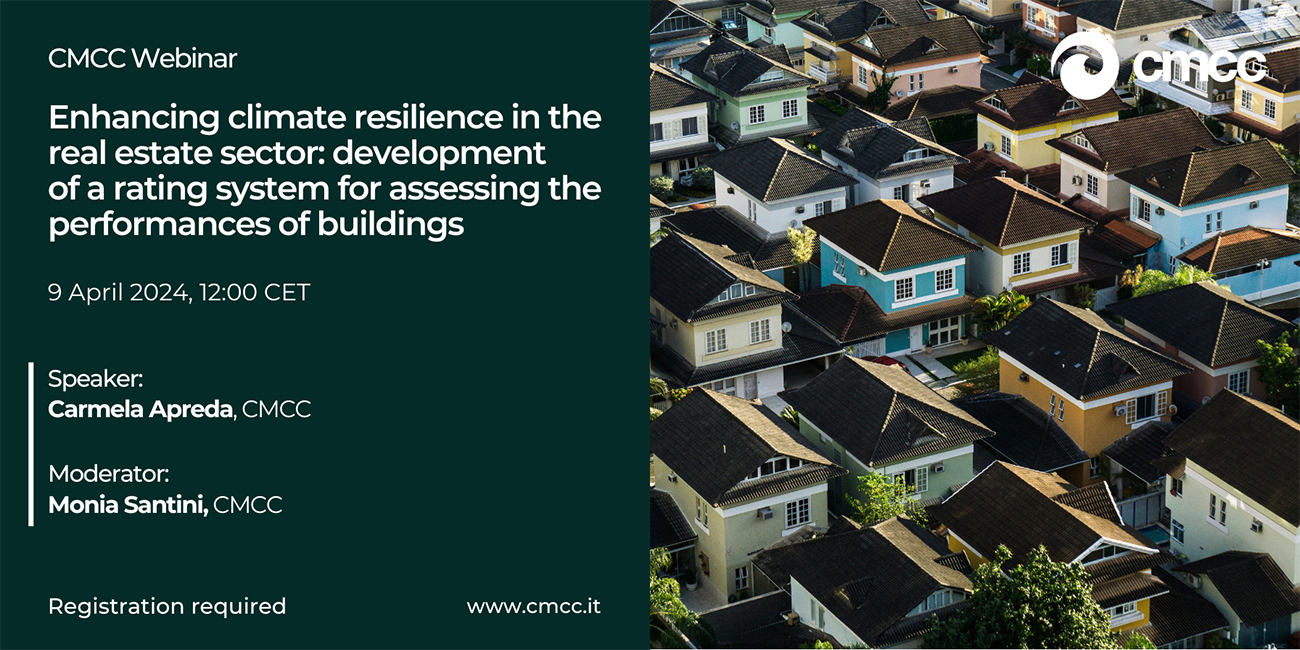CMCC Webinar
9 April 2024, 12:00 CET
To join the webinar, register here

Speaker:
Carmela Apreda, CMCC
Moderator:
Monia Santini, CMCC
Abstract
Climate change has emerged as one of the biggest environmental challenges facing the real estate sector at present and will be a critical issue in the future as well. Planning and implementing short-, medium- and long-term interventions are urgent, as delaying action may cause severe disruption to human and natural systems. The relationship between climate change and real estate is twofold: buildings and their occupants suffer the negative impacts of climate change affecting in turn climate-changing emissions to the atmosphere globally. The physical and structural features of real estate are of particular importance in programming and implementing actions to reduce climate impacts and promote adaptation. In this perspective, the public sector plays a leadership role in promoting strategies and implementing actions to foster and improve the adaptation and resilience of its housing stock throughout the entire life cycle with a climate-oriented approach. This is the mission of the Italian State Property Agency (Agenzia del Demanio) which is in charge of managing, rationalizing, and developing the State’s real estate assets, and it manages a portfolio of approximately 43 thousand assets valued at 62,5 billion euros. In collaboration with local governments and institutions, the Agency promotes the enhancement of public real estate by identifying innovative strategies and tools to activate urban regeneration operations and encourage the redevelopment of underutilized or abandoned public buildings.
The work carried out by CMCC in collaboration with the Agenzia del Demanio fits within the framework of the policies and guidelines provided at the community and national levels aimed at fostering the digital and ecological transition of the built environment using the project as a lever for transformation and innovation and reduce the financial risks associated with the effects of climate change. The study aimed at developing a rating system to assess both climate impacts on public real estate and the performances of adaptation actions. The system is based on quali- and quantitative indicators (Key Performance Indicators – KPI) aimed at assessing the performances of existing and new constructions at the different stages of the building process (investment planning, design, management, and monitoring). The proposed methodology also includes a catalogue of adaptation actions to support practitioners and designers in selecting, designing, and applying strategies and actions to increase building resilience in the medium-long term.
WATCH THE VIDEO

